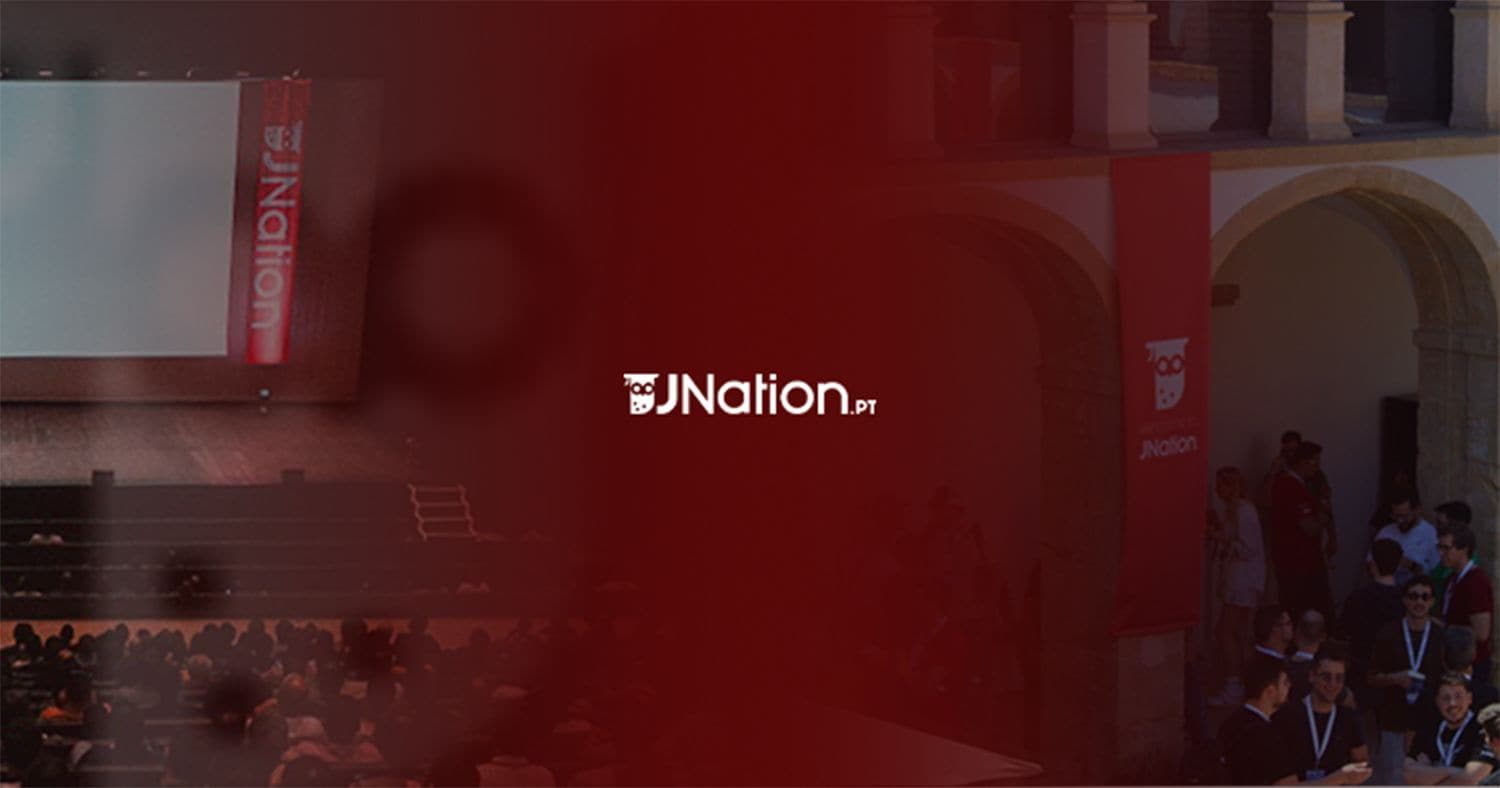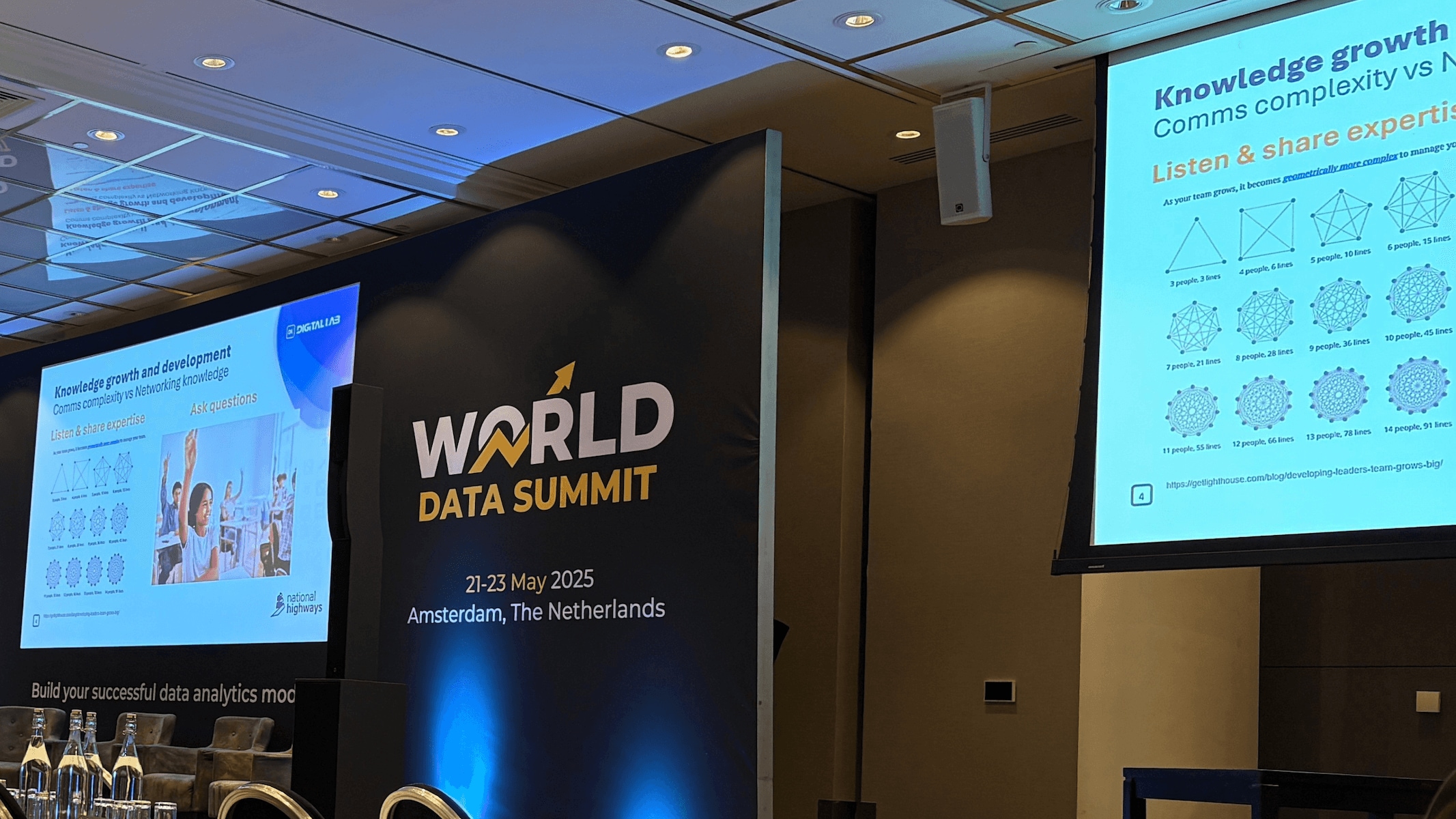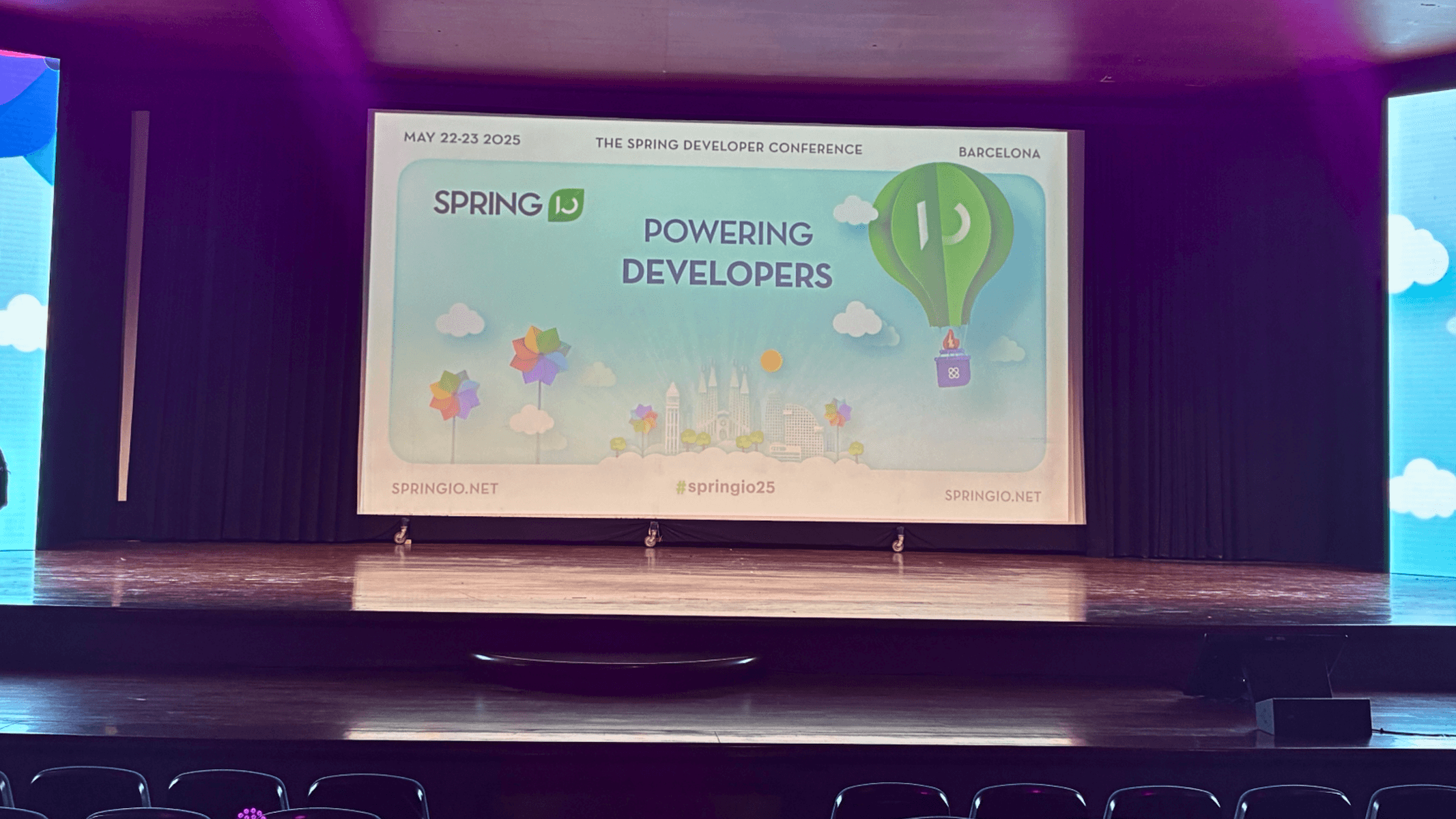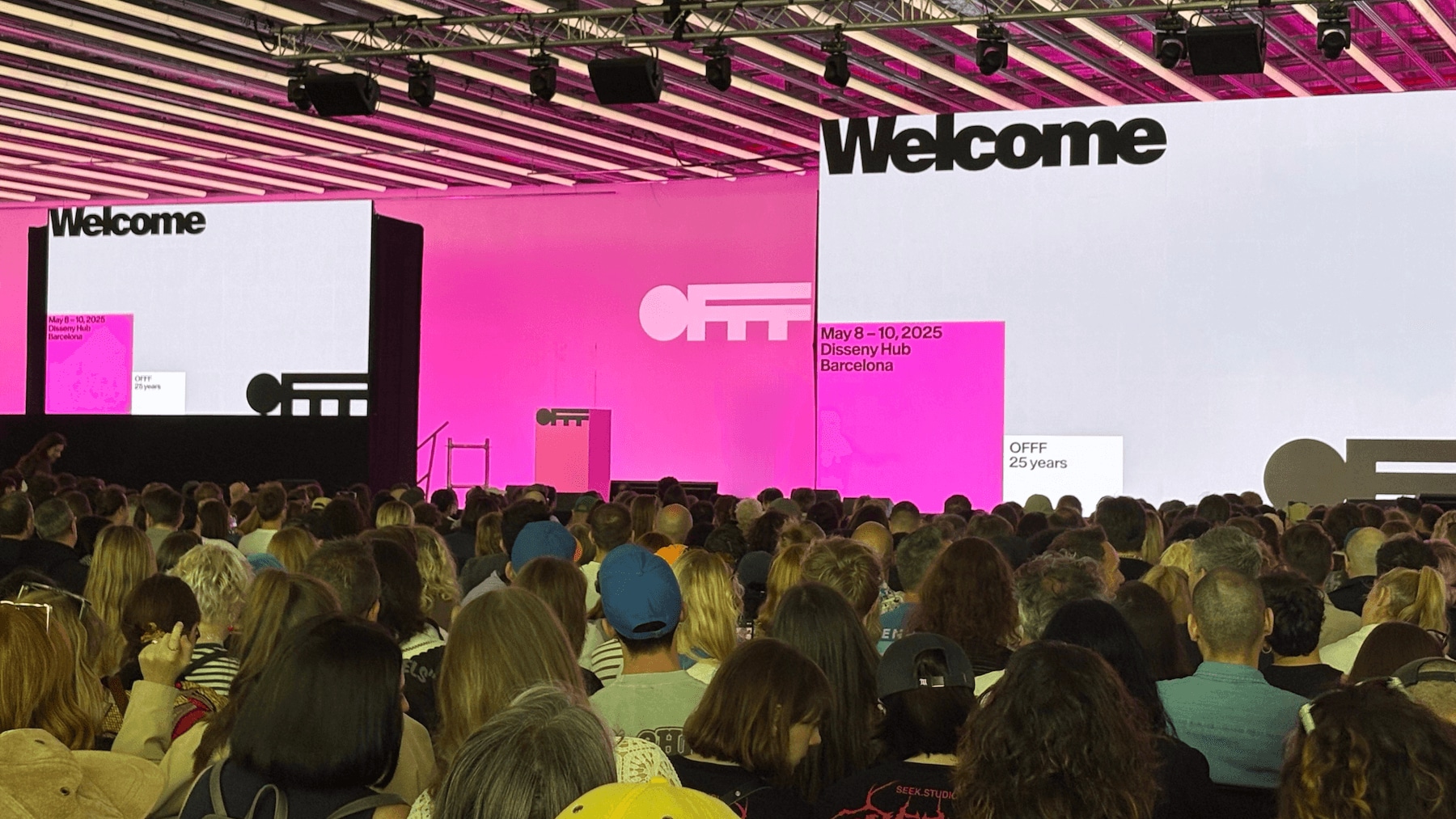
From Dev-Metal to Green IT: JNation Through a Backend Lens
What happens when you mix high-performance software, environmental sustainability, and a dose of metal music? You get JNation 2025 and the experience left a mark.
In the end of May, two of our MB.ioneers, Joana Coelho and Margarida Costa, attended JNation in Coimbra, one of the most relevant tech conferences in Portugal**. This conference is very dear to our MB.ioneers' hearts as it previously welcomed a speak from our Tribe. But this time, their** speaker lineup covering everything from AI and architecture to developer experience and green computing, the event provided not just insights, but fresh ways to think about how we build technology.
This recap brings together their key takeaways, the moments that sparked a new way of thinking, and the trends that might shape the future of engineering - not only at Mercedes-Benz.io but across the industry.
Contents
Connecting Performance and Responsibility
Joana Coelho was particularly inspired by two sessions: “Efficiency and Rock n’ Roll (Really!)” and “Going Green with Native: Efficient, Sustainable Software.” Both made a compelling case for responsible development practices. The message was clear: building high-performing systems doesn’t mean sacrificing sustainability. In fact, these goals can go hand in hand.
"In both talks," Joana shared, "the speakers emphasised the value of optimising systems not just for speed and scale, but for environmental impact. That’s something we’re starting to think about more - how performance and efficiency can also be good for the planet."
This topic isn’t new, but the growing relevance of Green IT is difficult to ignore. At a time when many companies are navigating cost reductions and scalability challenges, sustainable software practices offer a double win. They allow us to streamline performance while reducing energy consumption and computing waste.
Beyond Code: Purpose-Driven Systems
Another major theme was intentionality. “One of the biggest messages I took home,” Joana explained, “was that building software is not just about doing it well. It’s about knowing why we’re doing it and how it impacts others. Sustainability is one part of that. So is developer experience. So is performance.”
In her favourite quote from the conference, one speaker reflected on the rise of AI in coding:
“We normally spend more time reading than writing code — with AI, we're just shifting the time to reading from somewhere else. We have the illusion of efficiency there.”
The takeaway from this talk? That Speed and output alone don’t equal quality. As engineers, we’re responsible for making conscious decisions at every stage of development, from language choice to architecture to energy consumption.
From Metal to Microservices (and Monoliths)
Margarida Costa’s experience started with a bang. Literally. “I’m not even sure I want to attend another conference unless it starts with a dev-metal concert at 9am,” she joked, referencing the opening performance by Nanowar of Steel.
But it wasn’t all headbanging and humour. One of the most memorable talks for Margarida was Holly Cummins' keynote, “Efficiency and Rock ’n’ Roll (Really!).” Holly challenged the idea that more work always equals better work, arguing instead for smarter, leaner systems, and for finding joy in building them.
Margarida also attended Josh Long’s energetic presentation on Spring AI. “He showed how to build an AI-powered assistant that helps match people with their ideal pet,” she said. “It was entertaining, but also made a serious point: AI adoption is about designing solutions that solve real problems, not just using tech for the sake of it.”
In another hands-on session, she joined a workshop on context-aware applications using Java, Redis, and vector search - developing a movie recommendation app that balanced technical depth with user relevance. "It was a great mix of theory and practical work, and the idea of blending full-text search with vector similarity really caught my attention."
Architecture That Enables People
One session left a particularly lasting impression: Chris Richardson’s workshop on “Enabling DevOps and Team Topologies Through Architecture.” It was a deep dive into how architecture decisions can support or hinder collaboration and autonomy and how patterns like microservices and monoliths can be used more intentionally.
“It helped me understand our own architecture choices more deeply,” Margarida explained*. “Not just the how, but the why. And it reminded me that great systems support great teams - not the other way around.”*
The concept of “fast flow”, where architecture enables rapid, safe iteration, resonated strongly with both Joana and Margarida, especially in their day-to-day work supporting large-scale digital products. As our organisation grows, how we structure our systems matters just as much as how we structure our teams.
The Future of Backend (According to JNation)
At the end of the event, we asked both Joana and Margarida to sum up the future of backend development in one sentence.
Joana’s answer? “Efficient, performant, and scalable by design.”
Margarida’s version? “Rock’n’roll — and green, AI-powered, and fast flow enabled.”
Different wording, same spirit: the future of backend is not about one framework, one trend, or one fix-all solution. It’s about engineering with purpose, thinking long-term, and building systems that are sustainable; for our teams, our users, and the world around us.
What's the outcome?
JNation wasn’t just a space to learn about the latest features in Spring Boot or the performance gains of native compilation. It was a reminder that how we build matters as much as what we build. Whether it’s reducing carbon emissions with smarter code, designing architecture that empowers developers, or using AI to improve everyday tools, the impact of our work goes far beyond the codebase.
For Joana and Margarida, the experience sparked new questions and practical ideas they’re excited to bring into their work at Mercedes-Benz.io. And while the conference has ended, the inspiration it offered will carry forward - in conversations, in code, and in the way we choose to grow.
Related articles

Tiago Afonso
Why Better Data Starts with Better Questions: Insights from the World Data Summit
In a world where "more" is often mistaken for "better", the World Data Summit served as a powerful reminder that when it comes to data, quality always trumps quantity.
Jul 16, 2025

André Félix
What Spring I/O Gave Us About Modern Software, AI, and Rethinking Architecture
When it comes to building scalable, resilient, and future-ready software, the answers aren’t always where we expect them. That’s what Spring I/O 2025 reminded us, and for our Backend Engineer André Félix, it was both an inspiring and grounding experience.
Jul 4, 2025

Catarina Marques, Mariana Pereira
What OFFF Barcelona Taught Us About Design, Emotion, and Creative Risk
Every year, OFFF Barcelona gathers some of the boldest, brightest, and most unapologetically creative minds in the design world. It’s a space where visual artists, designers, and storytellers connect; not just through stunning work, but through the philosophies and emotions behind it.
May 30, 2025